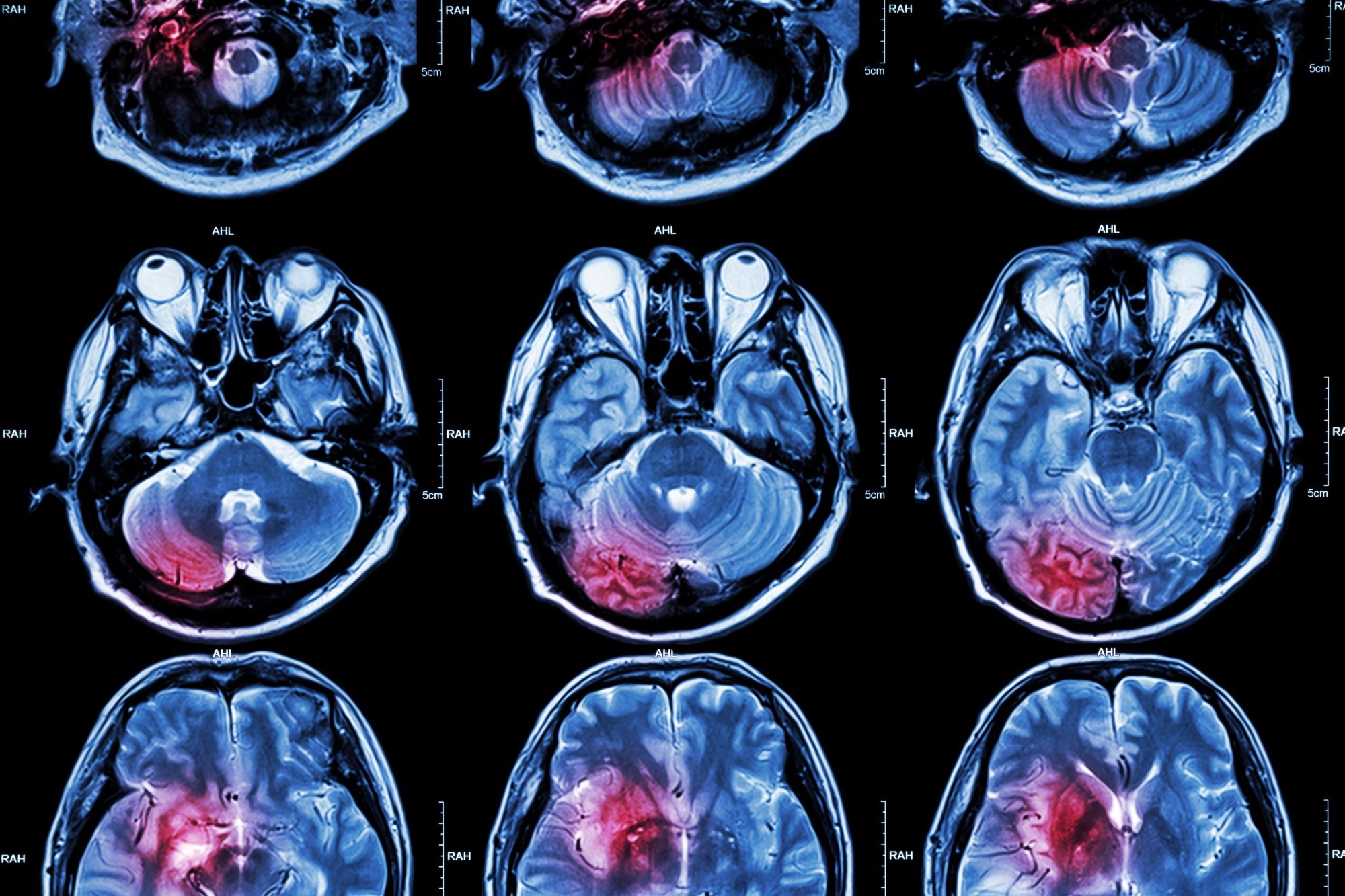A group of researchers at the University of Queensland (UQ), Australia, has recently developed an innovative nanoparticle-based drug delivery system that may help to overcome some of the challenges associated with drug delivery for certain brain cancers.

Image Credit: Puwadol Jaturawutthichai/Shutterstock.com
Treating brain cancer effectively presents a series of challenges. For instance, certain chemotherapy drugs are high in toxicity and have a limited lifespan in the blood. Thus, developing new technologies for delivering such drugs is vital when it comes to ensuring patients get the most out of the therapeutic effects of the drugs.
Published in the Journal of Controlled Release, the team describes how they created a silica nanoparticle that can carry temozolomide, a chemotherapy drug typically used for treating malignant gliomas or glioblastomas.
Loaded Nanoparticles
Temozolomide was first approved for use in the EU and United States in 1999 and has proven to be an effective treatment for treating malignant tumors when exposed to the site of treatment consistently. However, achieving this successfully is also one of the main challenges that medical professionals face.
This chemotherapy drug has limitations – it doesn’t stay in the blood for very long, it can be pushed out of the brain, and it doesn’t have high penetration from blood into the brain.
Dr. Taskeen Janjua, University of Queensland
By loading silica nanoparticles with temozolomide, the team was able to create a more efficient drug delivery system.
To make the drug more effective, we developed an ultra-small, large pore nanoparticle to help it move through the blood-brain barrier and penetrate the tumor while also reducing unwanted patient side effects.
Dr. Taskeen Janjua, University of Queensland
In the trials, the team used multi-cellular 3D spheroids to mimic responses and interactions in brain tumor cells when exposed to the loaded silica nanoparticles. The team found that this system has the potential to penetrate the brain-blood barrier and deliver temozolomide directly into the tumor.
Improving Brain Cancer Treatment Strategies
Improving the ability to treat malignant glioblastomas is crucial as they are amongst the most aggressive and common forms of brain cancer with no known specific cause. In most cases, the chances are relatively high that patients will fall into remission due to the nature of these tumors and the limitations of current drug delivery systems.
However, the team claims that this ground-breaking approach could not only improve the delivery of temozolomide but also could, in effect, improve the long-term potential of recovery as it may even prevent the cancer from returning.
The UQ team found that the nanoparticle drug delivery system also enhanced the cytotoxic efficacy of temozolomide against malignant glioblastoma cells.
Moreover, when treating their test animal models, the team discovered that the silica nanoparticles were able to reach the brain of the mice in just a few hours and had no negative impact on any other major organs in the body.
This innovative drug delivery system has the potential to improve the effectiveness of brain cancer treatment and could lead to new and better treatments for this devastating disease.
Dr. Popat, Associate Professor, University of Queensland
Although brain cancers are not among the most common forms, they can be devastating as survival chances are lower than other forms of cancer, with the likelihood of surviving more than five years post-diagnosis being less than 23%.1
While the UQ team says more research is required to further develop the silica-based nanoparticle drug delivery system, the results are promising.
This preclinical research will accelerate future clinical development of a promising health technology and further the goal of improving outcomes for patients with brain cancer.
Dr. Popat, Associate Professor, University of Queensland
References and Further Reading
- Nanoparticles deliver brain cancer treatment (2023) UQ News. Available at: https://www.uq.edu.au/news/article/2023/05/nanoparticles-deliver-brain-cancer-treatment
Disclaimer: The views expressed here are those of the author expressed in their private capacity and do not necessarily represent the views of AZoM.com Limited T/A AZoNetwork the owner and operator of this website. This disclaimer forms part of the Terms and conditions of use of this website.